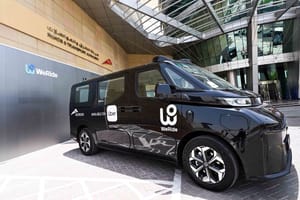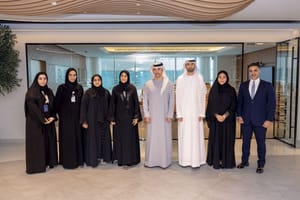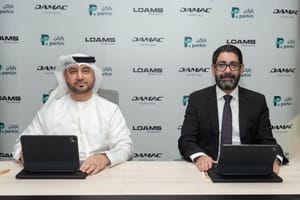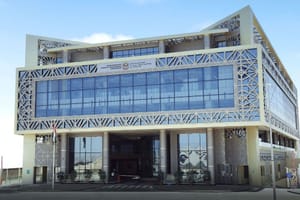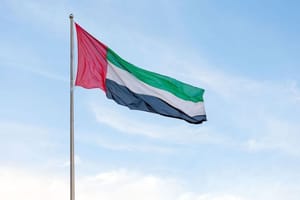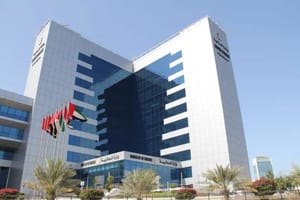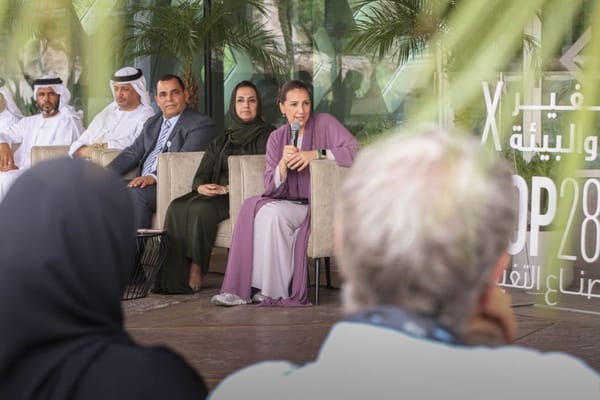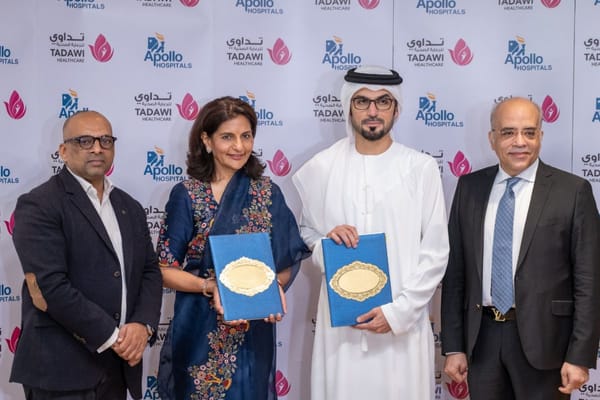H.H. Sheikh Hamdan bin Mohammed bin Rashid Al Maktoum, Crown Prince of Dubai and Chairman of The Executive Council of Dubai, today visited DEWA's upcoming hydroelectric plant in Hatta.
During his visit, Sheikh Hamdan reviewed the progress of the project, which is the first of its kind in the GCC region.
Sheikh Hamdan bin Mohammed highlighted Dubai’s commitment to implementing strategic initiatives to expand sustainable infrastructure and consolidate Dubai’s eminent position as a green economy hub, in line with the vision and directives of His Highness Sheikh Mohammed bin Rashid Al Maktoum, Vice President and Prime Minister of the UAE and Ruler of Dubai.
“Dubai's qualitative achievements in the clean energy sector, and its ability to transform innovative ideas into giant national projects, embody Dubai's spirit of leadership and vision of comprehensive and sustainable development,”
Sheikh Hamdan said.
He added,
“DEWA's progress in implementing sustainable projects underscores the efficiency of our national workforce and the agility of our organisations in executing projects efficiently. This advancement is evident in the completion rates of the hydroelectric plant, which have reached approximately 80%. Slated to be operational by the beginning of 2025, the project helps realise the Dubai Clean Energy Strategy 2050 and the Net Zero Strategy 2050, aiming for 100 percent of energy production capacity from clean sources by 2050. Such achievements reinforce our country's positive role in addressing the effects of climate change and its influential global position in climate action, as exemplified by its hosting of COP28 in Expo City Dubai.”
Sheikh Hamdan bin Mohammed was briefed by Saeed Mohammed Al Tayer, Managing Director and CEO of DEWA, on the progress of the hydroelectric power project. The project has reached an 80 percent completion rate and is scheduled for full completion by early 2025, with a total investment of AED1.421 billion. The project is set to have a capacity of 250 MW, a storage capacity of 1,500 MWh, and lifespan of 80 years.
The hydroelectric plant is a key component of DEWA's sustainable project portfolio, incorporating cutting-edge technologies. Such initiatives are integral to DEWA's commitment to delivering world-leading services and actively seeking sustainable solutions for current and future challenges, particularly those associated with climate issues. By embracing these advancements, Dubai aims to strengthen its position as one of the most innovative and future-ready cities globally, while significantly contributing to the realisation of Dubai's Clean Energy Strategy 2050.
Saeed Mohammed Al Tayer said,
“Under the visionary leadership of His Highness Sheikh Mohammed bin Rashid Al Maktoum and the follow-up of H.H. Sheikh Hamdan bin Mohammed bin Rashid Al Maktoum, DEWA has formulated a comprehensive plan to advance sustainable development, elevate Dubai's global standing as a leader in sustainability and green economy and devise solutions to mitigate carbon emissions and counteract the effects of climate change.”
Al Tayer highlighted that DEWA's sustainability projects support the UAE’s preparations to host COP28, with the hydroelectric power plant in Hatta being a pivotal component of DEWA's initiatives to diversify energy sources and invest in the energy storage sector. He emphasised that COP28 presents an opportunity to promote the UAE as an ecotourism destination and to showcase the nation's success story in the field of sustainability.
The hydroelectric power station will utilise water from the Hatta Dam and a newly constructed upper reservoir in the mountains. During off-peak hours, sophisticated turbines will harness clean energy to pump water from the dam to the upper reservoir. Subsequently, turbines driven by the speed of the waterfall from the upper reservoir will generate electricity through a 1.2-kilometre subterranean water canal. This system boasts high efficiency in power generation and storage, reaching up to 78.9 percent, with a rapid 90-second response to electricity demand.
News Source: Emirates News Agency


